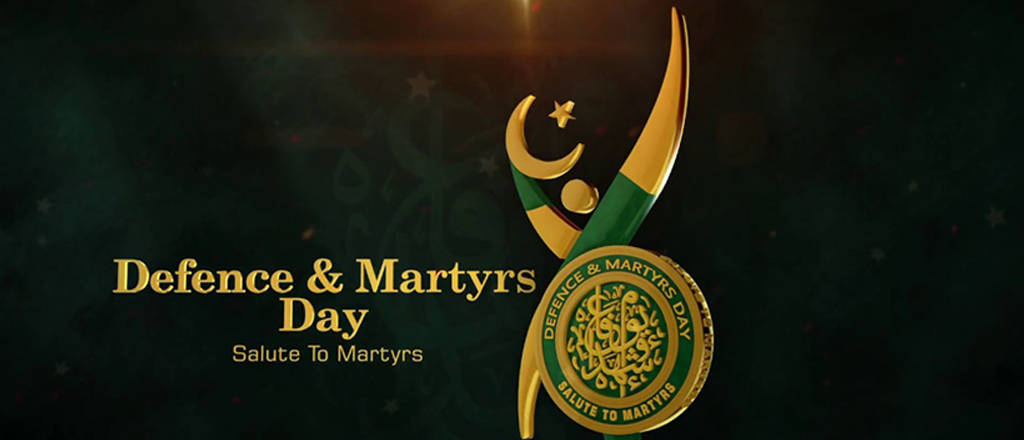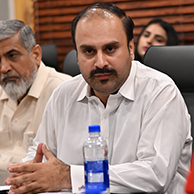The Significance of Defence Day: Honouring Sacrifices, Celebrating Unity

Introduction
Pakistan's defence holds a pivotal role in safeguarding the nation's sovereignty, protecting its borders, and ensuring the safety and security of its citizens. With a rich history of military valor and a commitment to maintaining a robust defence infrastructure, Pakistan's armed forces stand as a formidable shield against external threats. In this article, we delve into the multifaceted aspects of Pakistan's defence, exploring its historical significance, the role of its armed forces, and the contemporary challenges and priorities that shape its national security landscape.
The Indo-Pakistani War of 1965 commenced when Pakistan, responding to what it perceived as increased Indian aggression in Kashmir, sent Mujahid forces into the Kashmir Valley to incite rebellion and disrupt local installations. In the second phase of the conflict, on 1 September, Pakistan launched a tank offensive known as Operation Grand Slam aimed at the Akhnoor Bridge in the Jammu Division. The objective was to execute a rapid and decisive operation. According to scholar Shuja Nawaz, the Pakistani general leading this operation intended to capture the Akhnoor Bridge and then move towards Jammu to sever India's communication links with the Kashmir Valley. On 6 September, in accordance with their pre-announced strategy of retaliation, the Indian Army crossed the international border in Punjab with the intention of disrupting the Grand Trunk Road near Lahore and capturing the Lahore Cantonment. Ultimately, on 23 September, Pakistan accepted a United Nations-mandated ceasefire.
In the face of the intricate challenges posed by the 21st century, Pakistan recognizes the critical significance of modernizing its national defence and security apparatus. The nation is acutely aware of the imperative to continually enhance its defence capabilities, ensuring the protection of its citizens amidst evolving threats, technological advancements, and shifts in geopolitical dynamics. This entails a commitment to investing in cutting-edge military technology, strengthening intelligence networks, and equipping its armed forces with the necessary resources and supplies to effectively address present security challenges.
The drive for modernization encompasses a comprehensive approach that spans both a national security strategy and the acquisition of advanced military equipment. Pakistan is proactively engaged in research and development efforts to address emerging threats, such as cyberattacks, terrorism, and hybrid warfare, with a focus on developing effective countermeasures.
In parallel, Pakistan recognizes the significance of diplomatic initiatives, cultivating regional relationships, and forming alliances with international organizations. These efforts are instrumental in fostering a stable and secure environment. Pakistan's overarching objective in modernizing its national defence and security infrastructure is to create a conducive atmosphere for peace and development, safeguard its sovereignty, and contribute to regional and global stability.
The Vital Role Of Defence In Ensuring National Security
The Vital Role of Defence in Ensuring National Security underscores the critical importance of a country's defence mechanisms in safeguarding its overall security and stability. In essence, defence serves as the primary safeguard against external threats and potential aggressors, encompassing not only military forces but also intelligence and security apparatuses working cohesively to deter, detect, and respond to threats effectively. It plays a pivotal role in protecting a nation's sovereignty, territorial integrity, and the safety of its citizens. By maintaining a strong defence, a country can not only secure its borders but also create a safe environment for its people to live, work, and go about their daily lives without the constant fear of external aggression or violence. Moreover, a robust defence system acts as a powerful deterrent, dissuading potential adversaries from initiating conflicts and promoting regional and global stability. It also underpins economic prosperity, as a secure environment encourages investments, trade, and economic growth, ultimately contributing to a nation's development. Furthermore, defence is instrumental in protecting critical national resources, countering terrorism, responding to crises, and preserving a nation's cultural identity and values. In international relations, a strong defence enhances a country's diplomatic standing and its ability to negotiate effectively. In summary, defence is the linchpin of national security, encompassing a multifaceted approach to protect a nation's people, resources, and interests, both at home and on the global stage, while promoting peace, stability, and prosperity.
Significance Of Defence In Pakistan
The importance of defence in Pakistan is of paramount significance, driven by a confluence of historical, geopolitical, and regional factors. Pakistan shares its borders with India to the east and Afghanistan to the west, regions marked by persistent conflicts and instability. Consequently, Pakistan's defence forces play a pivotal role in upholding border stability and mitigating cross-border threats. Furthermore, Pakistan's status as a nuclear-armed nation places a substantial responsibility on its defence forces to maintain a credible nuclear deterrence strategy. Pakistan holds a unique position as the only Islamic state with nuclear power capabilities. It became the first Muslim-majority country to possess nuclear weapons. This distinction underscores Pakistan's significance in the global nuclear landscape. The country's nuclear program has evolved over the years, and Pakistan has taken steps to ensure the responsible use of this technology. Pakistan's development of nuclear power was motivated by regional security concerns, particularly its rivalry with India. The acquisition of nuclear weapons has provided Pakistan with a credible deterrence against external threats. This status brings both responsibilities and challenges. Pakistan has adhered to non-proliferation efforts while emphasizing the peaceful use of nuclear technology. It actively participates in international forums related to nuclear safety and security. Pakistan's role as the sole Islamic state with nuclear capabilities highlights its influence in global geopolitics and its commitment to safeguarding its national security interests while contributing to international efforts to prevent nuclear proliferation. This deterrence serves as a potent shield against potential acts of aggression, thereby bolstering regional stability. The Pakistani military, particularly its Strategic Plans Division (SPD), is responsible for the protection and management of Pakistan's nuclear facilities and weapons. They have implemented stringent security measures to prevent unauthorized access or potential threats from terrorist groups. This includes physical security, personnel reliability programs, and secure transportation protocols.
Pakistan has encountered formidable challenges from terrorist organizations operating within its borders. In response, the defence forces have assumed a critical role in counterterrorism operations, ensuring the safety and security of the civilian population. The country's economy hinges on trade, and its strategic geographic location serves as a crossroads connecting South Asia, Central Asia, and the Middle East. Hence, a robust defence infrastructure is imperative to safeguard economic interests and maintain secure trade routes, with particular emphasis on the China-Pakistan Economic Corridor (CPEC). Pakistan's susceptibility to natural disasters, such as earthquakes and floods, calls for the defence forces to play a vital role in disaster response and relief efforts. This underscores their significance in roles extending beyond traditional security functions. The defence forces are emblematic of national unity in Pakistan, acting as a unifying force that fosters patriotism and pride among citizens, transcending divisions of ethnicity, language, and region. Moreover, Pakistan actively contributes to United Nations peacekeeping missions, underscoring its dedication to global peace and security. To full fill international commitments effectively, maintaining robust defence capabilities remains indispensable. In the contemporary landscape, defence encompasses more than just troops and weaponry; it encompasses cutting-edge technology and cyber capabilities. Pakistan's defence sector is instrumental in propelling technological advancements and fostering national innovation.
Public sentiments regarding the armed forces in Pakistan are predominantly favourable and deeply ingrained in the nation's historical, cultural, and socio-political fabric. There exists a profound sense of pride and respect among the Pakistani public for their armed forces, with the sacrifices made by soldiers in various conflicts and peacekeeping missions held in high esteem. The armed forces are widely perceived as the custodians of Pakistan's sovereignty and territorial integrity, fulfilling a vital role in safeguarding the nation against external threats, a responsibility that garners extensive recognition and gratitude. In addition to their core defence functions, the armed forces are frequently engaged in humanitarian and disaster relief efforts, earning them respect and admiration for their swift response to natural disasters, including earthquakes and floods. The military's involvement in nation-building initiatives, spanning infrastructure development, educational programs, and healthcare projects, further enhances their reputation as active contributors to the nation's progress. Moreover, the armed forces serve as a unifying force in Pakistan's diverse and multi-ethnic society, transcending regional and ethnic divisions and symbolizing national unity.
In summary, defence in Pakistan holds crucial significance due to historical conflicts, regional tensions, nuclear deterrence, counterterrorism efforts, economic interests, disaster response, and its role in fostering national unity and fulfilling global commitments. Pakistan's defence forces play a multifaceted role in safeguarding the nation's security, stability, and prosperity.
Operation Peace Shield: Securing Against Terrorism
Pakistan's armed forces have actively participated in counter-terrorism endeavors to confront the looming issue of terrorism and militancy within the nation. These comprehensive efforts have encompassed both military and civilian components, with the overarching goal of establishing stability and security. The Pakistan Army has executed a series of military operations, notably in the Federally Administered Tribal Areas (FATA), Provincially Administered Tribal Areas (PATA), and the Khyber Pakhtunkhwa region, to eradicate terrorist sanctuaries and disrupt their networks. A concerted push has been made to enhance the synergy between the military and civilian sectors in the battle against terrorism. This entails collaborative efforts between the armed forces and civilian institutions, addressing not only the military aspect but also the socio-economic dimensions of terrorism. The Pakistan Action Plan to Counter Terrorism (PACT) lays out a proactive strategy to combat terrorism, forming a crucial part of Pakistan's overarching anti-terrorism approach. Initiatives like the Justice Project Pakistan prioritize the adherence to human rights principles and legal standards in counter-terrorism endeavors. The government of Pakistan, in conjunction with its armed forces, has devised and put into action policies aimed at tackling the terrorist menace.
The Pakistan Armed Forces have been involved in several significant anti-terrorism operations and campaigns within Pakistan. Like Operation Zarb-e-Azb (2014) launched in North Waziristan Agency, aimed to eliminate terrorist strongholds and networks in the tribal areas. Operation Radd-ul-Fasaad (2017) was launched nationwide to eliminate the residual threat of terrorism. It focused on urban counter-terrorism efforts, intelligence-based operations, and the disarmament of militant groups. Part of the broader Radd-ul-Fasaad operation, Khyber-4 was conducted in the Rajgal Valley of Khyber Agency to target militants operating in the region. Operation Khyber-2 (2014), aimed to target militant groups and their infrastructure in the region. Operation Rah-e-Nijat (2009) was launched in South Waziristan, significantly disrupting their activities in the area. Operation Zarb-e-Haq (2007) took place in Pakistan's tribal areas, targeting foreign militants and extremist groups. Operation Black Thunderstorm (2008) conducted in the Bajaur region. Operation Silence (2017) conducted in Balochistan to target militants involved in attacks on security forces and other subversive activities and Operation Karama (2015) focused on the Karachi area, to address urban terrorism, target criminal elements, and improve security in the city.
These policies encompass an array of strategies, including law enforcement, intelligence, and border control, all designed to effectively counter terrorism. Pakistan has actively engaged in international collaborations to combat terrorism, cooperating with global partners and organizations to share information and resources in the fight against terrorism. The intricate and evolving nature of the threat necessitates sustained vigilance and adaptable strategies.
Defence day commemoration at house of elaan headquaters
On September 7, 2023, a Defence Day commemorative event took place at the House of Elaan headquarters in Islamabad, organized by Elaan Research Centre. The ceremony was presided over by notable individuals including Mr. Ovais Ali Khokhar, President Elaan Research Centre and CEO House of Elaan, Mr. Zaildar Ahsan Shah, Managing Director Elaan Research Centre, Mr. Obaid Ayub, Director of the House of Elaan, Mr. Khalid Taimur, Executive Director Elaan Research Centre and Mr. Zeeshan, Assistant Director Sales.
Defence Day in Pakistan is an annual commemoration of the 1965 Indo-Pak War, a pivotal episode in Pakistan's history that unfolded from April to September 1965. This conflict holds immense historical significance, and Pakistan observes Defence Day on September 6th each year to pay tribute to the sacrifices made by its armed forces and civilians during this period. The war's commencement can be traced back to April 6, 1965, when confrontations erupted between Pakistani and Indian forces in the Rann of Kutch, a disputed region along their western border. These initial skirmishes eventually escalated into a full-fledged conflict, with battles taking place in various sectors along the international border and the Line of Control in Kashmir. International diplomatic efforts played a pivotal role in facilitating a ceasefire agreement brokered by the United Nations on September 23, 1965. Ultimately, the Tashkent Agreement, signed on January 10, 1966, brought a formal end to the hostilities.
Air Marshall Waseem ud Din (Retd) was the Chief Guest, along with the guest of honour Mr. Naveed Malik, President High court Bar Association, Qaiser Imam, President Islamabad Bar Association, Ambassador Fauzia Nasreen, Dr. Saleem Mazhar, DG National Language Promotion Department, Colonel Iftikhar, Strategic Planning Division and Colonel Ather Sultan. The attendees were treated to a series of videos on patriotism and sacrifice, thoughtfully crafted by the House of Elaan team as a heartfelt tribute to the heroes of September 6th. Following this presentation, Mr. Zaildar Ahsan Shah delivered his opening remarks, wherein he eloquently elucidated the importance and meaning of Defence Day. September 6th holds particular significance as it marks the date when our armed forces executed a successful counterattack against India. This day serves as a poignant reminder of the sacrifices made during the 1965 Indo-Pak War. It underscores the importance of national unity and defence preparedness while honouring the courage and dedication of both the armed forces and civilians who played vital roles during this crucial period in Pakistan's history. He also emphasized that
“our armed forces are a source of great pride and honour for us. Therefore, we must always remember and honour their sacrifices, particularly those made on September 6th.”
He went on to provide insights into the Elaan Research Centre, detailing the various domains in which it conducts research, encompassing real estate, national and international affairs, as well as social issues. Following this, Mr. Khalid Taimur extended a warm welcome to the distinguished guests and conveyed his sentiments to those in attendance, underscoring that without our armed forces, our identity would be incomplete. Air Marshal Waseem ud Din (Retd), the esteemed chief guest, provided a comprehensive account of the events surrounding the 1965 war. He further emphasized that as a united nation, we must once again come together to confront the economic challenges currently facing us. Mr. Naveed Malik conveyed a sincere tribute to the soldiers who made selfless sacrifices, enabling us to enjoy peace today. He emphasized that the legal community of the nation would consistently support and stand alongside our armed forces. He expressed gratitude to Mr. Zaildar Ahsan Shah for extending the invitation today. Additionally, he shared their views on the Elaan Research Centre, noting that it is doing commendable work in addressing the social issues of Pakistan.
Mr. Obaid Ayub and Mr. Zeeshan contributed to the discussion on Defence Day by expressing their deep appreciation for the armed forces and affirming their pride in having such a robust backbone for the nation. Colonel Iftikhar emphasized the symbiotic relationship between the nation and its armed forces, stating that when there is a nation, there are armed forces. He stressed the importance of unity among the people, urging them to work collectively for the betterment of their country and to stand together as one cohesive nation.
Furthermore, he acknowledged the significance of the peaceful environment they were currently enjoying, attributing it to the sacrifices made by the armed forces during the 1965 war, where they risked their lives to safeguard the entire nation. He also expressed confidence that, in the current critical situation, the nation would stand firmly behind the Pakistani army, offering support and solidarity to pave the way for a brighter future for Pakistan.
Ambassador Fauzia Nasreen paid a heartfelt tribute to the soldiers who selflessly sacrificed their lives, allowing us to live in peace today. She also touched upon her involvement with a children's NGO, expressing concern for their future given the current economic situation. She emphasized the need for proactive steps and sound policies to rectify the present challenges, as failure to do so could jeopardize our future generations. Professor Saleem Mazhar emphasized that Pakistan possesses a wealth of cultural heritage and traditions, but these precious aspects are gradually diminishing. He noted that it is essential to pass down these values to the future generations, as they may not fully appreciate them unless we make a concerted effort to transmit these traditions.
Concluding the meeting, Mr. Ovais Ali Khokhar delivered his closing remarks by offering prayers for the martyrs and underlining the debt of gratitude owed to our armed forces, whose sacrifices have enabled our nationhood. Mr. Khokhar urged everyone to contribute, whether through research or social media platforms, to promote positivity and bridge the gap between the people and the military.
Conclusion
The primary objective of this article is to highlight the significance of the 1965 war. Through this piece, our aim is to evoke a sense of patriotism and commemorate the sacrifices made by our martyrs. The Elaan Research Centre has endeavoured to bridge the divide between the public and our armed forces while striving to rejuvenate a sense of nationalism. On this 6th of September, let us remember the valor and sacrifices of our brave soldiers who defended our nation with unwavering dedication. Their heroism in the 1965 war serves as a timeless testament to the indomitable spirit of our people. As we commemorate this day, let us reaffirm our commitment to peace and unity, ensuring a brighter and more prosperous future for our beloved country. On this significant day of September 6th, we remember and honour the valor, sacrifices, and unwavering dedication of our armed forces and countrymen. The memory of 1965 continues to inspire us to stand united, protect our sovereignty, and work towards a peaceful and prosperous future for our nation. Let us cherish the spirit of patriotism and resolve to uphold the values that make our country strong and resilient.
His strategic vision and unwavering commitment to excellence have been instrumental in driving our company's growth and success. Zaildar Ahsan shah is not only a visionary leader but also a dedicated advocate for our team, fostering a culture of innovation, collaboration, and continuous improvement. Under his guidance, our company has not only met but exceeded its goals, positioning us as a market leader in Elaan Research centre.







